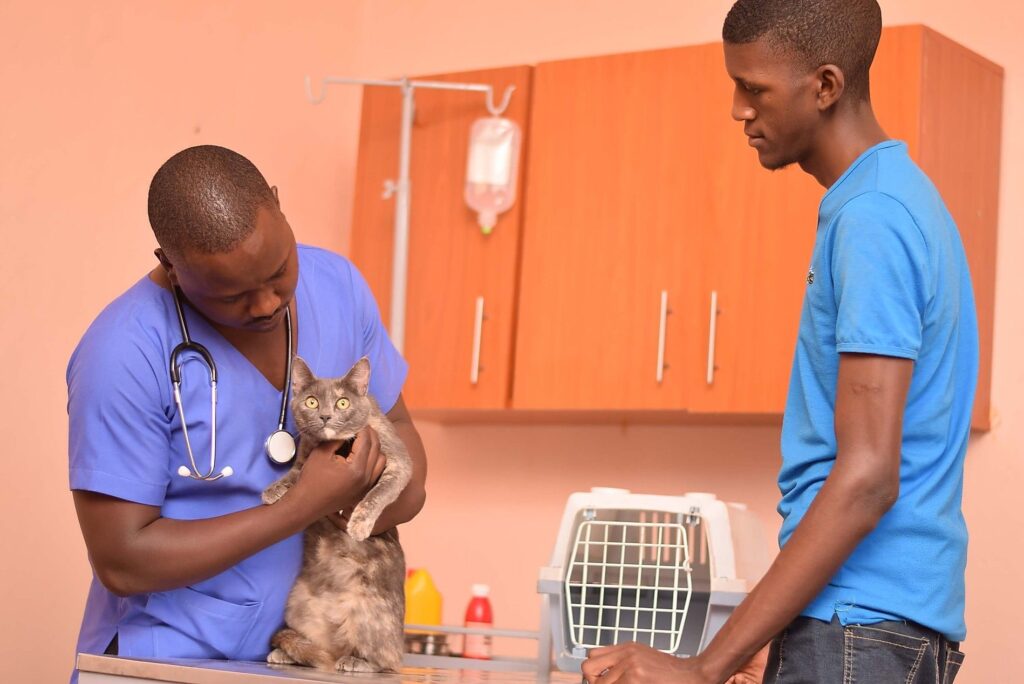UNIVERSITY OF GHANA SCHOOL OF VETERINARY

In the 1990s, the Dean of the then Faculty of Agriculture of the University of Ghana, Emeritus Professor E. V. Doku, initiated discussion on the possibility of training veterinary surgeons in Ghana. For many years, various stakeholder groups including the Ghana Veterinary Medical Association (GVMA), the Veterinary Council of Ghana and some Senior Members belonging to the veterinary profession, including the late Professors E N W Oppong and R Assoku, suggested the establishment of a School of Veterinary Medicine within the University of Ghana. For a variety of reasons, this did not materialize.
The School of Veterinary Medicine aims at being “the trainer of the next generation of veterinarians in Ghana and beyond.”
A wide range of courses in Basic Sciences, Animal Science, Biomedical and Clinical Sciences are included in the curriculum to ensure a good knowledge base and skills required for a graduating veterinarian.
Admission Requirements
Holders of the following qualifications are eligible for admission:
1. SSCE /WASSCE with good passes in core Mathematics, English and Integrated science with Elective Biology, Chemistry and either Physics or Elective mathematics.
2. BSc in Biological Science or Allied Health or Animal Science. These will be admitted to level 100 with waivers for university courses already taken.
3. Diploma in Animal Health (Distinction) who also satisfy the minimum requirements for admission to the University of Ghana. These will be admitted to level 100.
Duration of programme
The duration of the DVM programme is 6 years.
Our Mandate
The mandate of the SVM is to train and equip veterinary professionals to manage, control and prevent diseases of livestock, companion animals or pets, wildlife, or exotic animals and in addition, to prevent and control diseases which are transmissible from animals to humans.
Objectives
The specific objectives of the SVM are as follows:
- To train Veterinary Surgeons who will recognize and adequately treat diseases of livestock and companion animals in Ghana, thereby promoting the health and well-being of these animals.
- To train Veterinary Surgeons who will carry out disease surveillance, control and prevention of diseases of animals including those of wild animals and to prevent epidemics.
- To train Veterinarians who will carry out research at the highest level in biomedical research institutions in Ghana and worldwide.
- To train Veterinarians who will be able to accurately detect, control and prevent diseases of animals which are transmissible to humans and thus prevent epidemics of such diseases and promote human health and wellbeing.
- To provide basic training in Veterinary Sciences as a pre-requisite for those wishing to undertake postgraduate training and specialization in various medical, veterinary and scientific fields.
- To help stimulate local development of drugs and vaccines through research.





